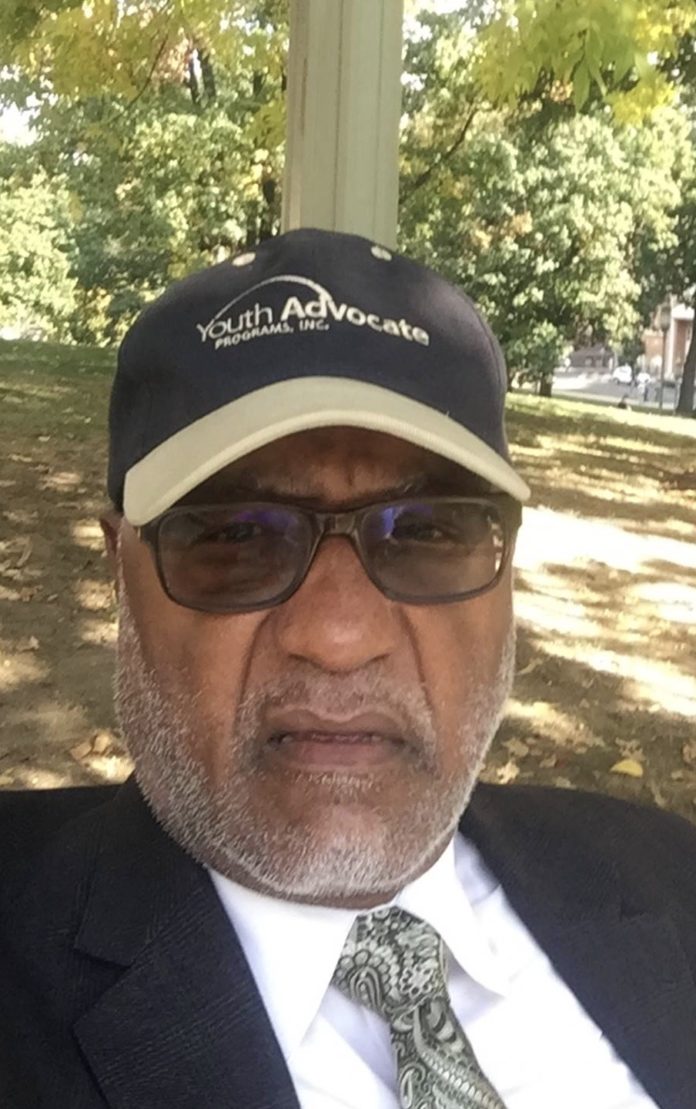On Sept. 30, 2020, Randall Sims, Regional Director, Youth Advocate Programs (YAP), Inc., testified before the Pennsylvania Juvenile Justice Task Force. Governor Tom Wolf, State Supreme Court Justice Thomas G. Saylor, and General Assembly leaders from both parties and houses established the Task Force in Dec. 2019, charging its members with providing data-informed findings and recommendations by March 31, 2021. The Task Force receives technical assistance from Pew Charitable Trusts and the Crime and Justice Institute.
Sims’ five-minute testimony appears below:
Hello, I’m Randall Sims, Regional Director for Youth Advocate Programs (YAP), Inc.
Four years ago, at age 16, Shyheem, returned home to Philadelphia from a state youth justice facility. Based on the reason for his incarceration, his experiences while locked up, and the length of time he’d been away from home, Shyheem’s probation officer knew the transition would be a challenge. So, he recommended — and the judge agreed — that Shyheem should be assigned to Philadelphia YAP to help him adjust.
Shyheem spent a few hours a day at our Philadelphia Day Treatment Center and true to the YAP model, our staff matched him with a YAP Advocate. YAP Advocates – most of whom live in the neighborhoods of the youth we serve, with shared lived experience — are paid, trained employees who deliver the individual and family “wraparound” services that are key to the YAP model. Shyheem’s Advocate helped him and his family create an individualized service plan. One of Shyheem’s goals was to get a job to earn the $4,323.50 he needed to pay in restitution in order to complete his probation.
Forty-five years ago, Tom Jeffers founded YAP with its headquarters in Harrisburg as a community-based alternative to youth incarceration. Today, the Pennsylvania-based national nonprofit serves 20,000 youth and families a year through partnerships with youth justice, child welfare, and social services systems in 150 counties in 29 states and the District of Columbia. Last year, in Pennsylvania, we served just under 2800 young people across 29 counties. About 1000 of YAP’s nearly 2500 employees are in Pennsylvania.
In 2004 after Tom’s passing, YAP employees began making contributions to build a scholarship fund in his name. That scholarship is one of the tools available to Advocates in helping program participants build individualized toolkits like the one Shyheem’s Advocate worked with him and his family to create.
We apply the evidence-based YAP youth justice model in our post-placement services, detention diversion, and gun violence prevention programs like Choose to Change, our partnership with Children’s Home & Aid in Chicago. The University of Chicago Crime Lab found the program reduces violent crime arrests among participants by 48 percent.
We also use the YAP youth justice model for family reunification and as an alternative to out-of-home placement of young people in group homes, treatment centers and developmental disabilities and autism care facilities.
YAP is filling service gaps for young people aging out of foster care, LGBTQ youth, commercially sexually exploited children, and young people impacted by substance use. We’re also using the model as the foundation for adult re-entry services and crime prevention programs where we are able to employ returning citizens.
The beauty of YAP is its simplicity. YAP-trained, employee Advocates help program participants identify their strengths and empower them and their parents or guardians with tools to achieve their goals and firm their foundation.
The YAP model is rooted in a desire to reform systems, including making them equitable for young Black and Brown people. This year’s protests of the death in police custody of George Floyd have brought new awareness to our model. YAP is the kind of cost-effective, community-based alternative to traditional public safety, child welfare and youth justice approaches that systems are looking for.
As noted in a Philadelphia Inquirer story about YAP, — and I quote here – “The average cost of a juvenile prison bed is $241 a day, but a slot in a community-based program costs less than $75 a day, according to the ACLU. At YAP, 86 percent of youth stayed arrest-free while in the program, a 2014 study found. In another 2014 study, researchers found that between six and 12 months after discharge from YAP, nearly 90 percent still lived in their community, and less than 5 percent were in secure placement, or detention.” End quote.
That brings us back to Shyheem. After several months of working with him, his YAP Advocate felt progress was too little and too slow. As per the YAP No Reject, No Eject policy, we didn’t give up. We matched him with another Advocate who felt that based on his own life experiences, he could make a breakthrough.
By late 2018, YAP Advocate Darnell began seeing things come together for Shyheem. Both the judge overseeing his case and Shyheem’s probation officer agreed that this once troubled youth was growing into a young man working towards a bright future.
In Spring 2019, Shyheem graduated from Excel Academy. He’d completed over 430 hours of community service at Inglis House assisting people with disabilities. He also worked at KIngsessing Recreation Center helping maintain the facility.
At his court hearing right before the city shutdown, Shyheem had completed his restitution and had an interview for a full-time job with a security company. On September 4th, the now 20-year-old Shyheem got word that Juvenile Probation has positively discharged him from custody.
At YAP, we believe every young person deserves what we all want — someone to believe in us against all odds — and an opportunity to prove them right. Thank you for taking time to hear about the YAP model.
For more information on YAP, please visit YAPInc.org.



















